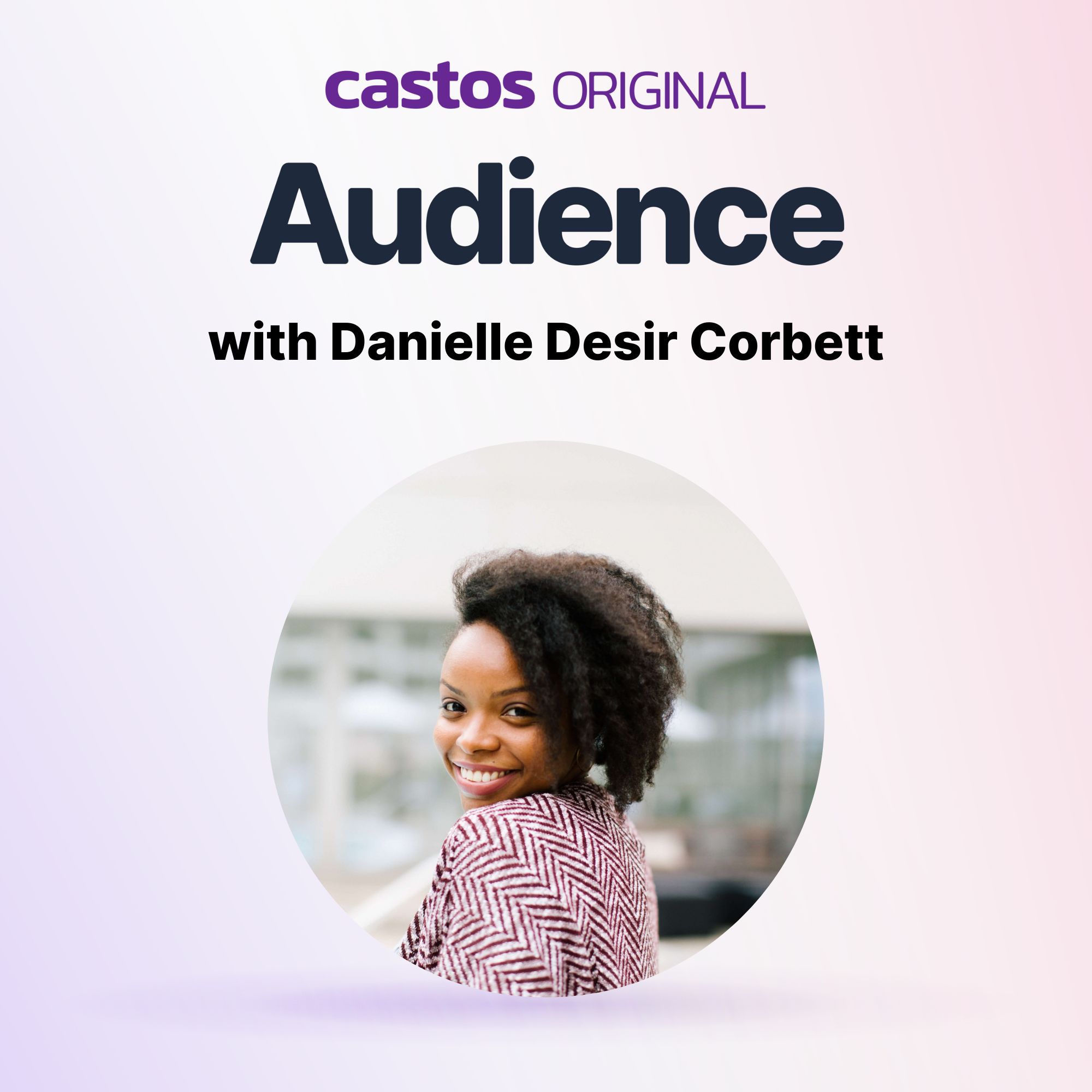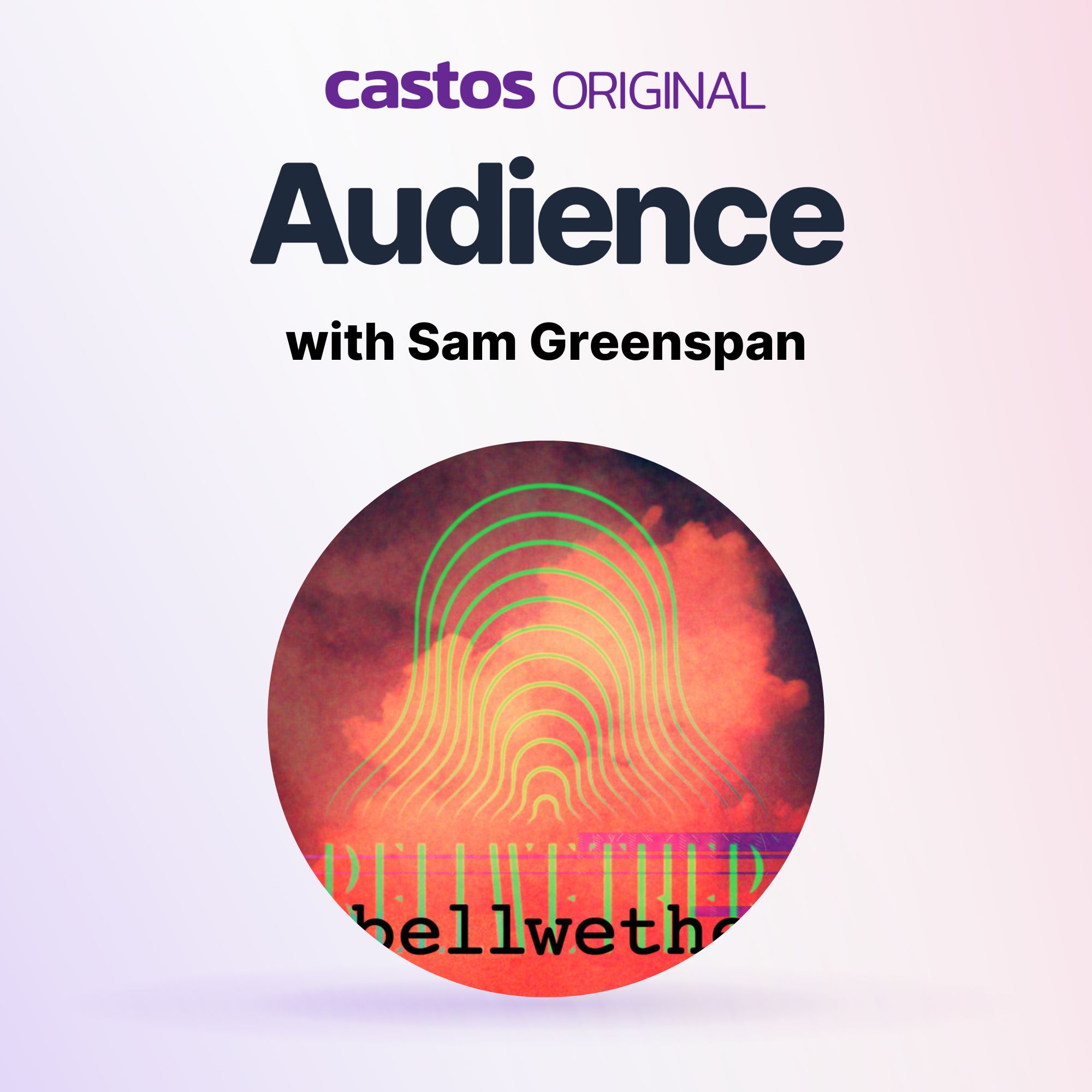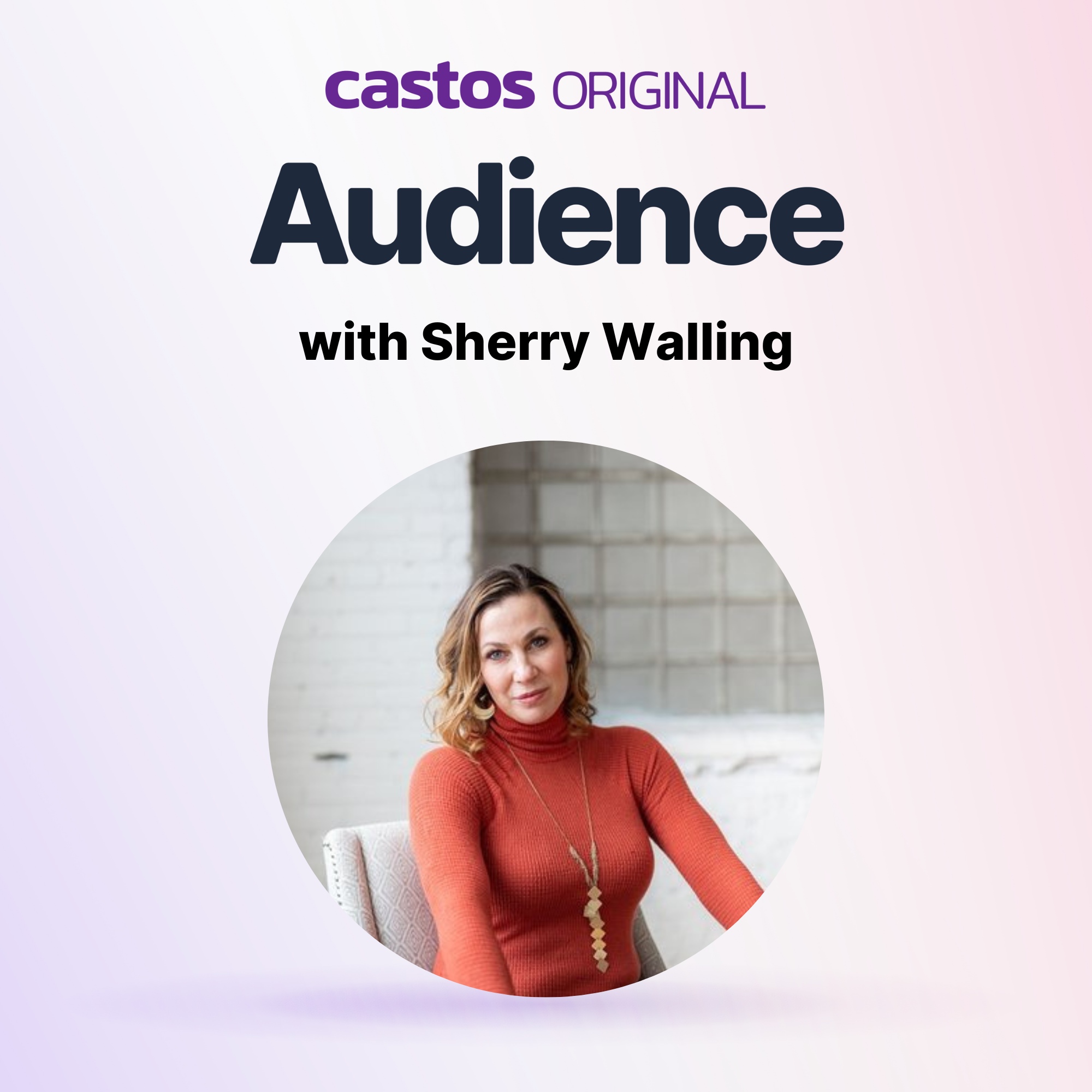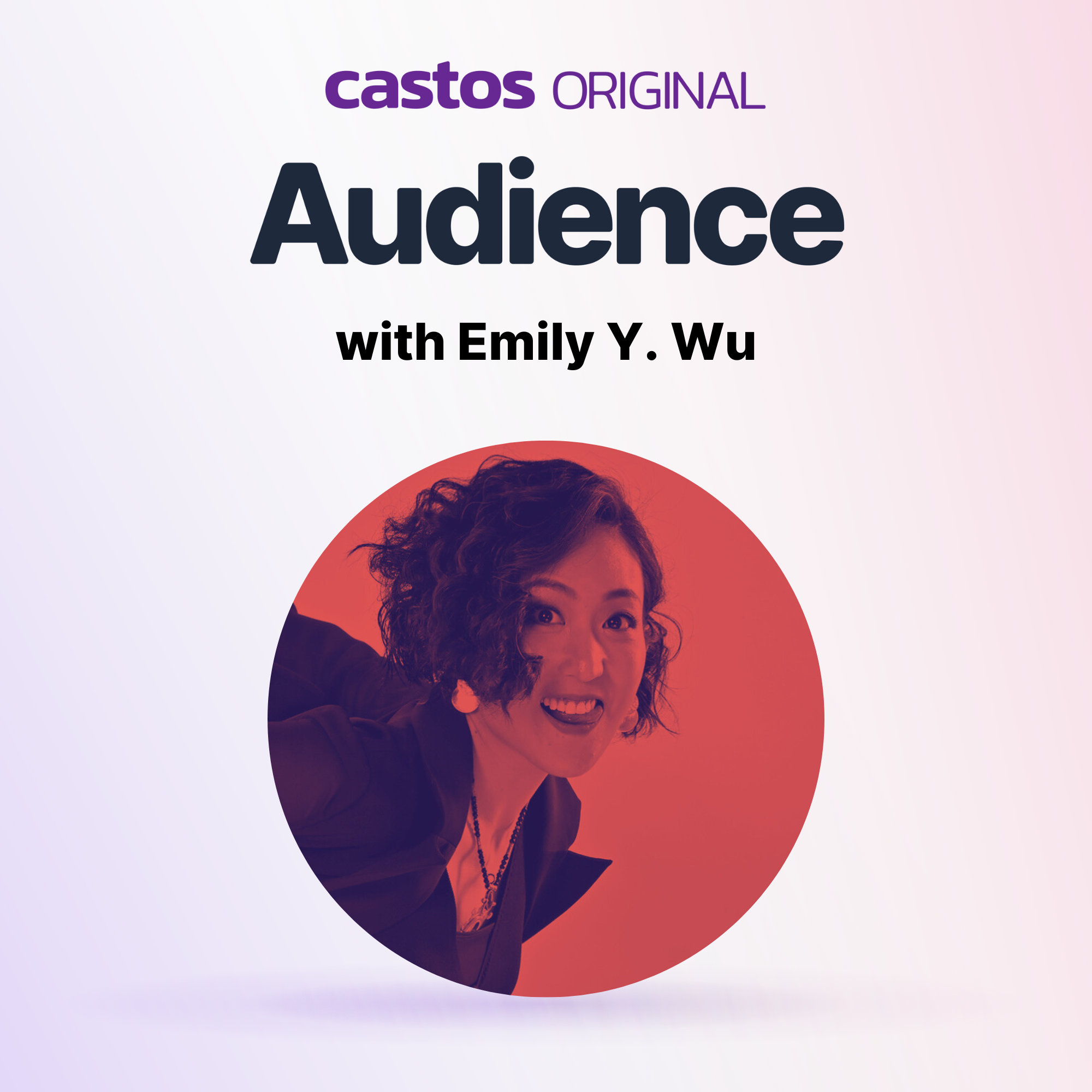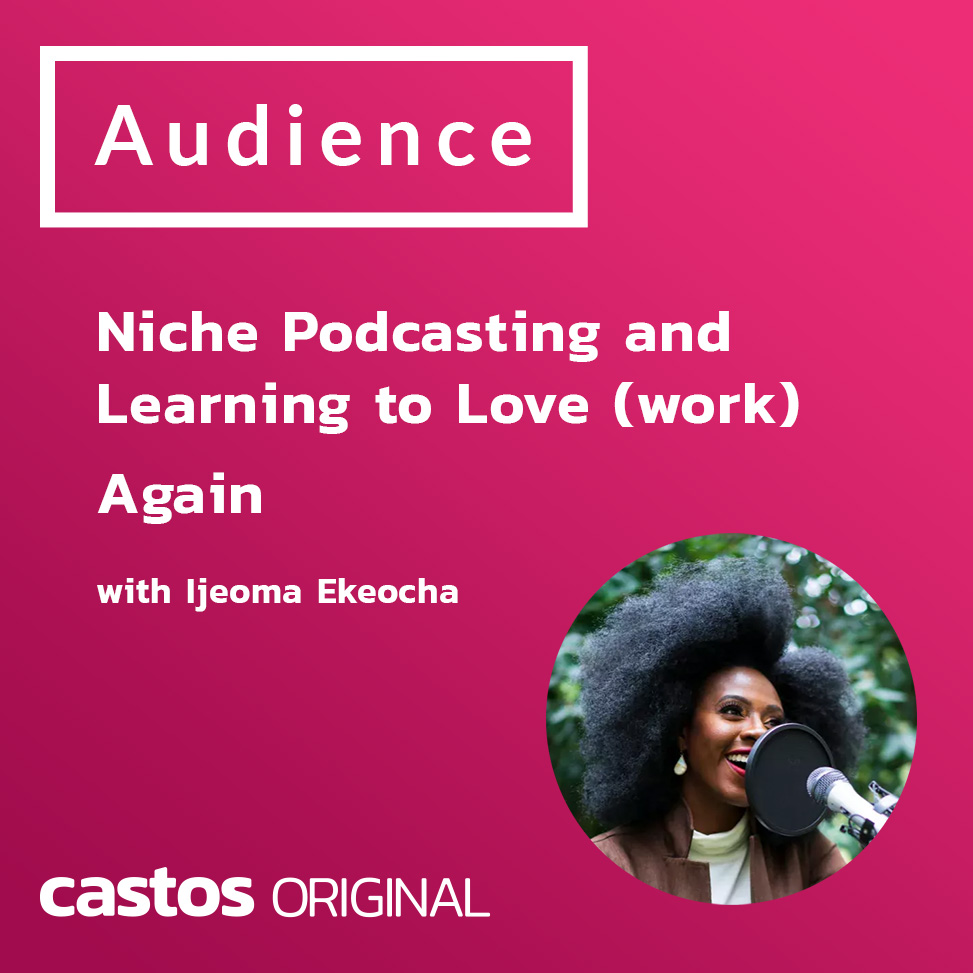Speaker 0 00:00:00 While back there was this article in the New York times about Indy podcast, studios and money it's written by Reggie AOO. And it's an interesting look at how small podcast studios fund their shows, or it may be to be a bit more accurate, how they sometimes struggle to fund their shows. It's worth a read, but to sum it up, they typically have to choose between making their shows at a deficit and trying to recoup the money later through ad sales or teaming up with a larger distributor who funds the project and then usually puts the show behind some kind of paywall. These of course are both pretty valid ways to fund projects, but as the article points out, they both have their challenges. Putting a show behind a paywall, makes it harder for more people to discover it while most ad platforms cater to the creators with the biggest audience. So you get the point. These funding models typically work best for podcasters who already have large followings. So smaller creators are finding other ways to fund their work.
Speaker 2 00:01:00 So for podcasters who are considering looking at grants, maybe you could look around and see what are the things that you're missing, or what are the things that you would be able to actually create. If you have the funds
Speaker 0 00:01:14 Next, you'll hear from a creator who funded her podcast through a grant and how she helps other creators do the same. Speaking of crowdfunding Casto has tools to help you do just that. For instance, you can create a subscription based podcast. Thanks to our partnership with Stripe, use it, our new integrative tool. You can create a private podcast and accept payments directly from your listeners. No more clunky ad algorithms that don't generate all that much income, no more middleman, take a 30% cut. It's a direct payment from your audience to you. Simple, learn
[email protected] or click on the link. In the show notes.
Speaker 2 00:01:54 I had an idea to create a docu-series within my podcast, highlighting woman of color building wealth, which you really don't typically hear about
Speaker 0 00:02:04 That's Danielle Dezi Corbit. She's a multi-pasionate creative and the host of a podcast called thought card. It's all about personal finance and building wealth episodes could focus on anything from traveling, budgeting, investing, and finding a mortgage, but it was her idea for a docu-series within her own podcast that presented the need for a bigger budget. So she started applying for grants.
Speaker 2 00:02:27 So I got a grant and, um, me and my co-host Aqua Escar worked on this project together and I was like, you know what? I won one. So let's just go around and see if anyone else is interested in funding, this particular docu series. So I actually won three grants for that particular docu series. And then I want an additional grant to support my work as a travel podcaster as well.
Speaker 0 00:02:54 It made such a difference that she wanted to help other creators also find grants. So now she runs a newsletter called grants for creators. She also founded women of color podcasters, a community that helps women of color reach their podcasting goals before her success. As a podcaster, Danielle worked as a grants manager at a medical school, helping scientists and doctors apply for grant funding. So this transition into podcasting about personal finance and helping creators find grant money seems like a pretty natural fit and it is, but really finance and budgeting has been a thing her entire life.
Speaker 2 00:03:31 I grew up like with my mom as a single mom. And she was really adamant about me understanding personal finance and, and saving. And I started investing at the age of 15. So personal finance was always something that we talked about around the dinner table. It was very normal to talk about like what building wealth looks like. And I dig into it even more when I realized as I was adulting <laugh> quote unquote air quotes that, wow, the struggle is real. When you don't have the finances to back up all the things you wanna do, uh, in your life, like travel or purchase a home, or just hang out with friends and do different things. So, yeah, it's been around for a really long time, but, uh, it definitely blew up for me when I, uh, finished graduate school. And I was trying to just figure this thing out. So
Speaker 3 00:04:15 How did, uh, thought card come about?
Speaker 2 00:04:17 Yeah, so it was 2015 and maybe a little bit before that I was, uh, saving for my first trip to Paris around 2014 with my first job. And I was also trying to pay off my student loan debt. So I wanted to document both of those journeys, traveling, going on my first trip to Paris and exploring as an adult and also what it was like trying to pay off $63,000 of student loan debt. Uh, and that, that personal finance angle took off. And I was like, Ooh, I have something here. Like I don't have to be one. I could be both. I could be both travel and both personal finance. And over the years, I've definitely grown to following who are both passionate about both topics, which is really, really cool.
Speaker 3 00:04:59 If you're game for it. I wanna play a clip for you from one of your recent episodes of thought card. I don't know if you've quite ever, you know, some of us are on all that comfortable hearing ourselves let's, but if you wanna let's with podcasting, you've gotta do it. I love it. So, uh, this is gonna come from an episode 1 0 2 titled define your travel style. And I picked this for a reason, but first I wanna listen together and then we'll talk about it. On the other side,
Speaker 2 00:05:23 Every traveler has their own unique travel style or a way of traveling that reflects their interests and values. Your travel style dictates what you do on vacation and what you spend money on while traveling. It's less about the type of traveler, you know, budget versus luxury traveler or the types of travel like cruises, all inclusive resorts or group trips, but what you enjoy spending money on by understanding your travel style, you can better align your finances with what you value and skip the rest.
Speaker 3 00:06:01 This feels like an allegory for creators, right? Having a budget and everyone having their own approach to creating and finding of finance model that fits that, that seems really important for, uh, for, for creators.
Speaker 2 00:06:15 I think we're programmed to wanna fit into a mold. We wanna fit into a particular path or a particular subset. And what I've learned is that you can live in the blurry middle, right? You can, you can be multiple things and do multiple things and, and have changing thoughts. You can change your mind. And I think I talk about that in the episode. Like you can change your mind or other episodes as well. So I definitely agree. Um, especially as a creative being fluid, trying different things out, knowing who you are and what you're passionate about and your strengths and leaning into those are also all important things. So I think fluidity is so important in being open to change,
Speaker 3 00:07:04 Right? I mean the more traditional funded model would be. You create a podcast, you work really, really hard. You do all the, all the really hard work that you've gotta do anyway, but then you're also trying to market this thing, or you're doing all types of marketing and that's a very ephemeral thing and come to find out, getting ad revenue can be, can be really tricky. And I'm of the opinion, or I'm actually very interested in grant funding. So first of all, can you just gimme a little bit of background on how you became interested in grant funding for creators?
Speaker 2 00:07:36 Sure. So I'm gonna step back for a second and say, although I had a career in grant funding, I could have never imagined creating something where I was utilizing those same exact skill sets. If I did, I probably would've been running grants for craters in tandem for the past seven years. So grants for craters is a new venture. I started it in January of 2022, and I just had an epiphany one day. Actually I was, uh, I was pregnant and I couldn't sleep. It was 3:00 AM. And I've had this idea in my, in my mind for a long time and, you know, paralysis. And the baby said, you know, mom, whyt just get up and just start researching and, and start to figure this out. So, but before, even that part, I actually won four grants between 2020 and 2021 for my podcast. So my first grant was I had an idea to create a docu-series within my podcast, highlighting woman of color building wealth, which you really don't typically hear about.
Speaker 2 00:08:48 So I got a grant and, um, me and my co-host Aqua Erne worked on this project together. And I was like, you know what? I won one. So let's just go around and see if anyone else is interested in funding, this particular docu series. So I actually won three grants for that particular docu series. And then I won an additional grant to support my work as a travel podcaster as well. So it was at that point, once I won the first grant, I was like, oh, I can't unsee this. I tapped into something. I don't know what it is, but I'm going to make sure that I put my name and put my projects into as many different opportunities, put my hat in for my different opportunities as I could. And over that, the months of me finding grants for myself, I said, you know what?
Speaker 2 00:09:39 Like I find so many grants that are not a good fit for me. What if I had an avenue where I, in a platform that I can share all these opportunities that I find with other people and grants were creators, the name came up and the project came up, but I had this paralysis over. I gotta build a website. I gotta find colors and are branding and I'm pregnant and I don't have time and I'm tired <laugh> but like I mentioned, that 3:00 AM, uh, I was pregnant and I couldn't sleep. And the idea came to me to let's check out stubs, stack, and yeah, everything fell in line. And, and that's how I really leaned into searching for granted finding grants for creators.
Speaker 3 00:10:21 Well, first of all, I'm just floored that someone's managers to have constructive thoughts. When I wake up at
Speaker 2 00:10:27 3:00 AM, <laugh> we're special. He's a special baby. He's a special <laugh>.
Speaker 3 00:10:34 That's when all my imposter syndromes, all my self doubt, all the second guessing of every piece of work I've ever done kicks in is when I wake up at 3:00 AM. So kudos to you. So yeah, grants for creators. It's a great newsletter. And it it's really just wonderful. Cause I think, again, it's one of those things. People don't know it's out there, always some people know, but I wanna talk a little bit about maybe, you know, grant funding versus traditional funding.
Speaker 2 00:11:00 So grants are traditionally free money that an organization, a foundation, or even a government entity has put aside to fund a particular mission. And a lot of people think that grants, this free money is only available for nonprofits. And that is not true. There is a huge sector of grants called small business grants. Now, what I found is that creatives and creators like your journalists, photographers, filmmakers, artists, bloggers, writers, all of these people, they do not see themselves typically as small business owners. So when they do potentially see a grant free money opportunity, come, come out and, and they're reading the request request proposals, RFP to see if they qualify. They're like, Ugh, well, they're looking for a small business. That's not me, but that is you. You are a small business. And even if you are a hobby podcast or a hobby, creative, you have expenses.
Speaker 2 00:12:20 And some of these organizations have a fluid definition of what a small business is. Sometimes they don't even care. If it's a business, they just wanna fund a, a project, a mission driven project. So you can absolutely apply. And I think the mindset piece is one of the things that I am trying to bust the myth that we are not small business owners and we are not eligible for grant opportunities that say small business. So of course there are opportunities you'll find out there that will have specifically the word photographers filmmakers. There are opportunities out there, but they're limited. However, if you open your mind and say, you know what, I'm a small business and let's see if this opportunity's funding projects like mine, then you'll find so many, many more opportunities for you to receive funding. Fundamentally what's different between a grant and let's say a sponsorship or a brand deal is a grant.
Speaker 2 00:13:20 Typically there are no deliverables for the most part, you may have to submit a report or you may have to submit something to the grand tour, but typically it's considered free money where they are giving you this pot of money to further your mission, further, whatever you're working on compared to a sponsorship or a brand deal. It's typically to promote that business. And the deliverable may be an ad. Read a deliverable may be an actual integrated episode. And typically the sponsor will have a direct say in what you say in the episode, how you say it, how you represent that brand. And there's a bit more strings attached to that funds compared to your grant. It is free money. And for the most part, most granters don't have any post requirements.
Speaker 3 00:14:15 I'm surprised to hear you say that there's, there's nothing expected in return. Sounds like maybe the folks handing out the money probably themselves are very qualified to determine if I give Danielle money, I know she's gonna do great work with it. So we don't really need to, to keep tabs on
Speaker 2 00:14:31 Her. Yeah, because in the application it's a lot of applications are extensive. They wanna know why you, why your project, how you're impacting the community, how you're serving your customers, what are your plans? What's the budget. So it's a lot of applications. Not all, a lot of applications are extensive. And they're trying to figure out if you qualify and if you are the right project to fund, but aside of that, some grants have no attachments. It's like, Hey, you've won $5,000. You know, thanks for your work. And you know, maybe we'll post about you on social media or something like that. Uh, but there's no, not all the time. Is there requirements to report back in 30 days or a year or submit receipts? Sometimes there are, there are some grants, again, it depends on their grant tour, but a lot of opportunities I've actually seen and I've actually won myself. It was just, Hey, you won this grant. We're so excited to support your project and good luck.
Speaker 3 00:15:33 Now you've been an independent creator before. You've also yourself, again, been awarded multiple grants for the projects you've gotten grant funding for, like, what has that allowed you to do what have those resources unlocked for you?
Speaker 2 00:15:44 Right. So I think it's really important to think about your business model, even if you're not necessarily a business, but how are you going to take care of your expenses? Are you gonna self fund this project, this podcast, whereas kind of coming out of, you know, your funds or are you going to try other ideas, for example, having a Patreon or having a, buy me a coffee or create courses or merchandise and any of those things. So I like to think about grants as helping me bridge the gap in terms of something that I would like to do with my podcast or my project, but I'm not quite able to right now. So for podcasters who are considering looking at grants, maybe you could look around and see what are the things that you're missing or what are the things that you would be able to actually create if you have the funds?
Speaker 2 00:16:36 So an angle that I took when I won my first grant was, Hey, I wanna create an audio docu-series never been done before in the personal finance base. And I need these funds to actually get started. I need to pay for hosting. I need a new cover art design. I need a new microphone. I need zoom, you know, zoom expenses. I have all these little expenses and that's going to help launch the project. So there are actually grants and other funding mechanisms out there that will help you to just launch your idea. Then there are also other grants that you can apply for that can help you to take care of expenses. So that will allow you to maybe pay for hosting for a year or maybe purchase or upgrade your equipment. I would love to upgrade my microphone. Um, I had a grant that helped me to design my, uh, aesthetic of my home office because I wanted to dive more into YouTube.
Speaker 2 00:17:40 So I was able to get like a couch and a, and, um, lighting and all these other things to help create an office space. So I really think what's important for listeners is to think about potentially, what could you launch? What should, what could you create with these new funds and or what gaps do you have in your production? Or what gaps do you have that you wanna fill? And a grant could potentially help you fill that? The other thing I also wanna say is that as a podcasters, we're building communities around our podcast and a lot of grant opportunities are looking to fund community builders. So that's another opportunity. You know, if you have a podcast, you have an audience, especially if you have an audience that's hard to reach. Um, so a lot of opportunities that I apply for are for women of color podcasters in our organization. I'm like, okay, I have this community that I wanna serve. And if you provide grant funding for me, I will be able to X, Y, Z, and help amplify what they're working on. So again, as a podcaster, you are a community builder. You're a community organizer, you're a small business. You are also a creative.
Speaker 3 00:18:56 So anyone out there looking to apply for a grant, what are some things they can do to better their odds of getting awarded a grant? I mean, if it's a podcast, should they already have say like a pilot episode created? Is there some sort of proof of concept that's gonna really help better their odds?
Speaker 2 00:19:12 I think it depends because some of the grants that I applied for, especially when I didn't have my audio docu-series up yet, I just painted a really good picture with words. And I tried my best to explain what the project is going to be. And that was sufficient enough. So first and foremost, I think it's important is to look at the organization that is funding, funding this grant and see what are they looking for? What kind of projects are they looking to fund and would your project align with their mission? Because if there's no alignment there, most likely they're not going to fund you. So for example, if there is a grant opportunity looking to fund beauty creators, and I'm like, well, I have beauty creators kind of in my audience, kind of maybe I don't really know. I'm not gonna get the grid. <laugh>, it's not a good fit.
Speaker 2 00:20:07 So be very cognizant and be very mindful when you're reading these, uh, descriptions of these grants to see, okay, do I qualify for the grant? And then secondly, also reading the about, of the organizer or the funder grant funder to see, do I fit? Is there alignment there? Would they, would they say, you know what? This is like exactly what we're looking for off of a first glance, cuz it's their, there's no alignment. They're most likely not going to fund you. So I think that's really, really important. I would say when it comes to where to find grants as a podcaster, make sure you're signed up for a lot of the industry newsletters, because a lot of times they're going to pick up that maybe NPR has a new, uh, new funding opportunity or new accelerator. So these are other words that you can, you find grants, accelerators, fellowships, these are all words, greater funds.
Speaker 2 00:21:08 These are all words. These are all pots of money that are available for you. So one of my tips is sign up and, and stay plugged in. So sign up for newsletters. If you ever see a grant, that sounds like it was gonna be a good fit, but unfortunately it passed sign up for their newsletter. So you'd be the first one to know when the next cycle opens up again. Um, so I think that would be the best tip that I have is podcast news, newsletters plugs. They plugged into the community podcasting community. And if you do see a grant that is over, make sure you sign up for the newsletter. So you'd be the first one to know for the next potential cycle
Speaker 3 00:21:45 I've signed up for that newsletter or read them. They're great. They're they're worth listening to Danielle. It's been a
Speaker 2 00:21:51 Pleasure. Thank you so much. It was so great. Thank you.
Speaker 0 00:21:56 You could learn more about Danielle's work@thoughtcarddotcomandgrantsforcreatorsatgrantsforcreatorsdotsubs.com.
Speaker 6 00:22:07 Hey there, listener it's Matt, before you go, I want to offer you the aspiring podcaster to special items. Number one, if you haven't started a podcast yet, or you want to find a better podcast, hosting companies start here at casts. Use our coupon code audience 20 that's audience two zero. When you sign up for a new
[email protected], start a podcast like the one you just heard or about gluten free muffins, whatever it is will help you get your podcast out into the world. Number two, did you know that our academy is free enrolled today for
[email protected]. Get access to our courses, videos and templates all for free. Thanks for listening to the audience podcast today. We hope we're helping you become a better podcaster. All that's left for you to do is share this episode on social media buy for now.
